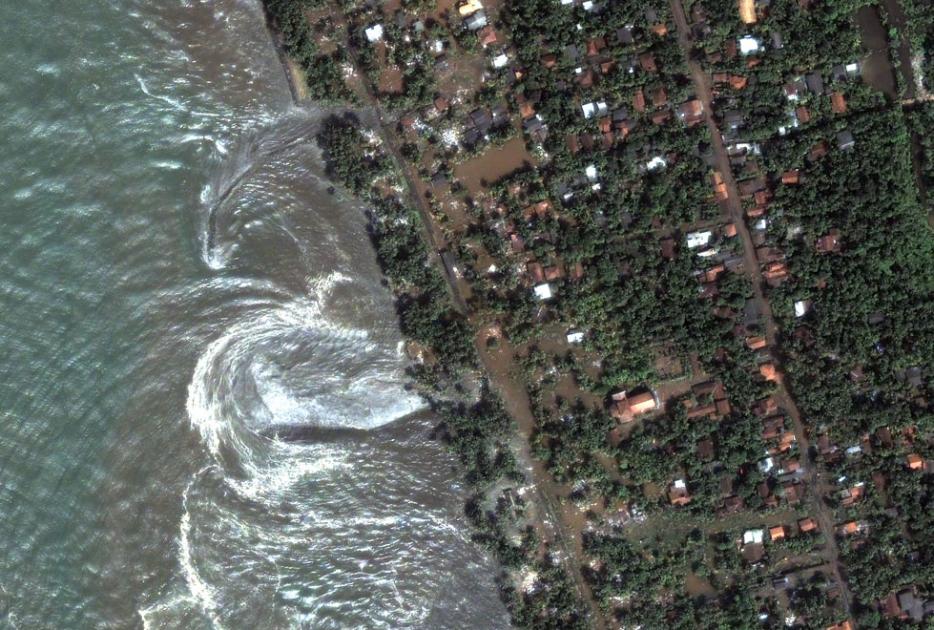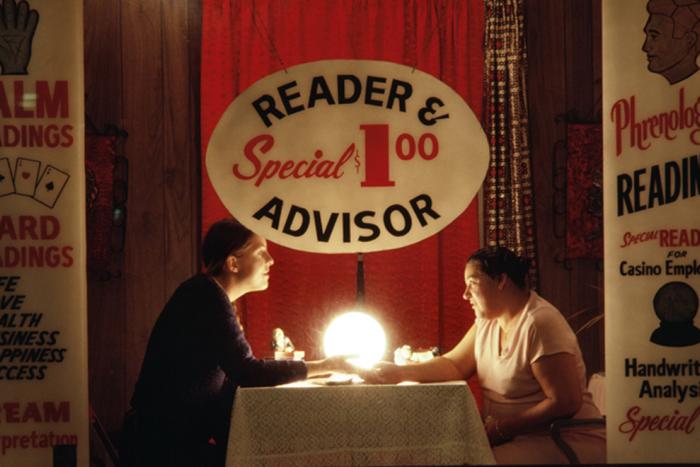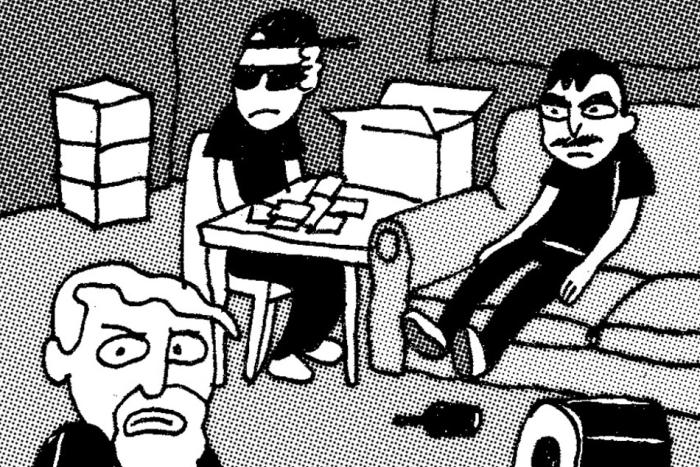In her piercing memoir, Wave, Sonali Deraniyagala describes her strange and utter bereavement. It is, she writes, “the outlandish truth of me.”
The London-based economist was holidaying with her family on the Sri Lankan coast when the Boxing Day 2004 tsunami struck. Her two young sons, Vik and Malli, her husband Stephen Lissenburgh, her parents, and a close friend were among the 230,000 who died across the rim of the Indian Ocean.
Her grief has since become a way of life, her layered memories of horror and tenderness constant. With the passing of time, her family’s absence “has expanded,” she writes. “Just as our life would have in this time, it has swelled.” As has her yearning. “I want to be in our life.”
Deraniyagala’s writing is almost forensic in detail, by turns starkly horrifying and suffused with warmth. She writes as a naturalist might, paying close attention to light, to sounds and scents, and to animals, birds and wild spaces, all of which her family loved.
Currently dividing her working life between London and New York, where she is a visiting researcher and professor at Columbia University, she still visits Sri Lanka often, and travels widely.
It was her therapist who encouraged her to write, and until now she has been private about her personal catastrophe. “I don’t share it with most people,” she says. With the publication of Wave, that has changed. Hazlitt spoke with Deraniyagala during a recent promotional stop in Toronto.
Now that the book is out, you’re suddenly speaking with strangers about your experience. How are you finding this?
The book itself becoming a book is slightly overwhelming. I wrote this for a long time not intending it to be one. I’m okay about talking to strangers up to a point. In the moment I’m fine, I always find, and then later I feel rather… It makes the reality of what happened more real each time. People’s reaction always reflects back into me. They’re very enthusiastic but of course very saddened by it. You’d think it would be real after eight years, but there’s always another degree of realness.
Tell me about how you wrote the book.
I started out writing about being the water, being in the wave. I wanted to explore and unravel in my own mind what had happened. It was so bewildering, so unknown. It was not like we were in a car crash and you can see it coming toward you and you know what it is.
I really thought I was dreaming. I hadn’t heard the word tsunami. We don’t get tidal waves in Sri Lanka or anything of the sort. It was as strange as if an asteroid had hit. Because I didn’t lose consciousness, I remember everything, but there was no context, no frame of reference. As you’re being tossed about your mind is not adjusting. I remember floating on my back, looking up and seeing this flock of storks above me and noticing that they were painted storks. We were really interested, our family, in birds.
In the context of everyday life, though, is everything loaded with memory?
I was terrified of everything from that life. I could see this [a coffee cup] and think, I had that in that life. Everything is loaded—you know, washing-up liquid, grocery shopping. I try to do my grocery shopping online because walking down the same aisles is too much. But being able to know that, to feel it rather than block it out, has been good for me.
I am willing to do that. I should feel the pain. Why shouldn’t I? I can’t get to the love unless I feel the pain, the terror of what happened and the joy that we had.
How was the experience of writing about it?
As time went on I would write and remember a little more, daring to remember. That was my way of channeling the remembering. I was also trying to write well. I would be cross with myself: “Can’t you string two sentences together?” And part of me was asking myself, “does it really matter? Really?” It was bizarre.
Each thing I wrote was entirely self-contained. In the beginning I just wrote about my children; there was no Steve or my parents. I can only hold some of this at one time. What I’ve learned over time is to hold the loss rather than trying to bear it, to live in both worlds.
Where did you write?
In New York I have a small studio apartment in the Village with a loft bed. I wrote right at the back in the corner of the bed, covered in my duvet because there was, physically, real pain to think about something like seeing my younger son dancing in the kitchen. I had to get right into those details and wanting to write well allowed me to access the memory as closely as I could. It suited me to keep even their faces blurred and fuzzy but I couldn’t write that way. I had to get it as sharp as I could. It was agony but it was a really good agony because with it came an elation. It was my way of keeping them with me.
Does anything console you?
Remembering has been the huge consolation, or it has been making it tolerable, even more than tolerable. My knee-jerk defence was to try to shut out memories of my kids and Steve and my parents. I believed that if I remembered it would do me in, not that I wasn’t done in anyway, but that I would keel over.
You want to drop dead out of pain, but on the other hand you’ve got to protect yourself. It’s been about knowing and learning that memory is what sustains me. That’s been my survival. Yes, it’s agony to remember, but it’s a better quality of agony than when I try to keep it out. I have tried to re-enter each aspect of my life, of before, and recover all the details and in the process recover myself. That keeps me buoyant.
Is there a book that has been important to you since this happened?
After a year or two, when I began to read again, I read Peter Mathiessen’s The Snow Leopard a lot. Somehow it was the descriptions of nature that were like a painkiller for me. When I was in agony they would soothe me.
Michael Ondaatje was involved in the publication of Wave, I understand.
I met him in New York some years ago at dinner with friends. We were chatting and got along well. He said, “keep in touch,” and of course I didn’t because… you know, it’s Michael Ondaatje… [laughs]
You had to get over that in order to approach him with your work?
And I didn’t for a long time also because I didn’t believe in the quality of what I was writing. I gathered my courage; he said to send a few pages along. He must get so many of these things; I really felt sorry for him. But he was hugely positive and asked if I had any more. After he had read it I sat with it for another few months and he asked it I wanted to send it to his agent; that wasn’t so long ago and it’s now a book.
Will you write again?
I love to write. Because it sustained me, I need to write. And I need to get back to that quiet place where I wrote. That’s where I was best. I don’t know if I will write a book or not but I can’t just drop it now and go back to just being an academic. I just cannot do that.
Since the tsunami you have begun to research post-disaster economic recovery.
I’m a development economist. Previously I worked on poverty and the economics of civil conflict and how it affects populations, so that feeds into the research I am doing on what happens after natural disasters, which mostly affect the poor. I look at education, literacy, human development and inequality. I’ve been researching the aftermath in Sri Lanka and the effect of the 2008 cyclone in Burma.
With the book out—I was doing all this research with not an emotional diffidence, but I could teach as if this had nothing to do with me. Now it’s a bit different because it’s all out there.
Do people now want to tell you their stories of trauma or loss?
People do take the trouble to write. I don’t read it all and I don’t reply. Mostly they say thank you. There was one note I was very moved by. A man said, “I am writing from a pediatric intensive care unit where my son had been for 40 days and people say that I have strength, but mine is miniscule compared to yours. Whenever I am feeling low I look to your book.” It wasn’t written for that purpose, but that’s wonderful.
I only know what happened to me; I’m not in a position to give advice or to console.





